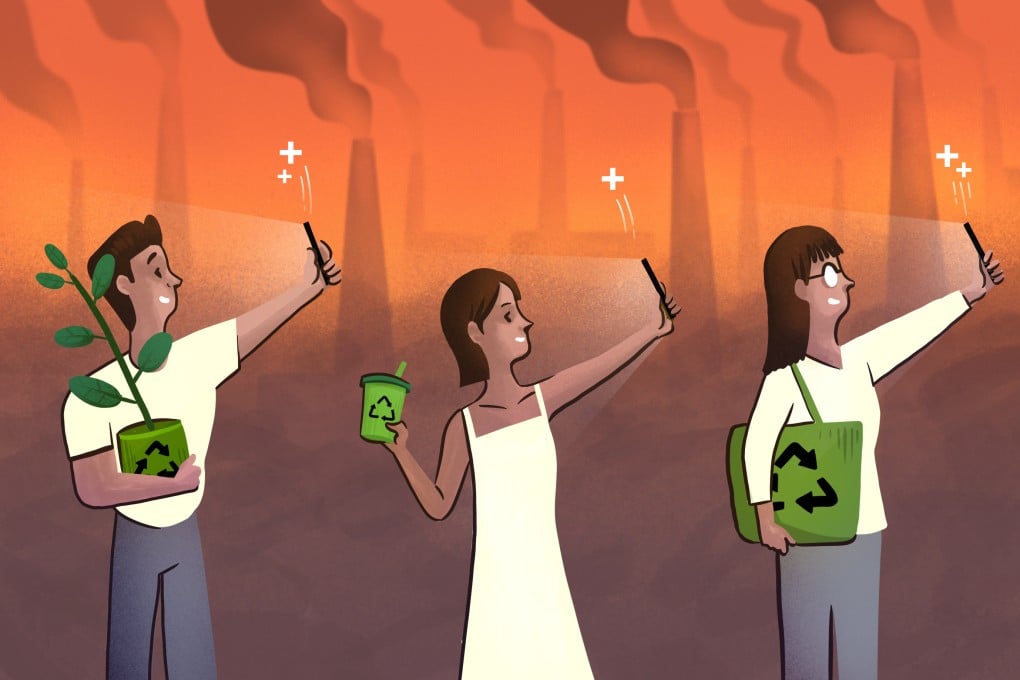Advertisement
Will China’s experiment to promote low-carbon living to its 1.4 billion people work?
- Companies and local Chinese governments are working on apps that let individuals earn points for green actions such as bringing their own cup when buying coffee
- Analysts brand the so-called Tanpuhui apps a ‘farce’, call for streamlined and scientific approach to driving low-carbon behaviours
Reading Time:6 minutes
Why you can trust SCMP
3

Yujie Xuein Shenzhen
For the past two months, Mandy Chen, a second-year student at Beijing University of Technology, has without fail been posting photos of herself to Taobao, posing with a reusable cup in front of Starbucks, climbing stairs and switching off lights.
Within minutes, she receives a dozen points from the shopping app as a reward. According to Taobao’s artificial intelligence algorithm, Chen’s actions eliminated 15.7 grams of carbon emissions by using a reusable cup, 19.5 grams by not taking the lift and 65.50 grams by saving electricity.
After the first seven days of diligently posting her photos, Chen exchanged the points for a dozen rolls of biodegradable rubbish bags from Taobao.
“You can get an endless supply of free trash bags if you keep going,” said Chen, who is now saving her points for something better, like cash coupons, snacks and water bottles.

Chen uses Carbon88, a “carbon ledger platform” launched last August by internet giant Alibaba Group Holding, which also owns this newspaper, to help the more than 800 million users on Taobao adopt a sustainable lifestyle. The platform lists and rewards users for more than 70 low-carbon behaviours, from taking public transport to shopping for second-hand items. It also recommends products that it considers environmentally sustainable, and gives users points for buying them.
As China goes all out to deliver on its pledge to peak greenhouse gas emissions by 2030 and reach net-zero emissions by 2060, from increasing renewable energy use to setting up the world’s largest carbon trading market, local governments and companies are trying to cut emissions at the individual level.
Advertisement